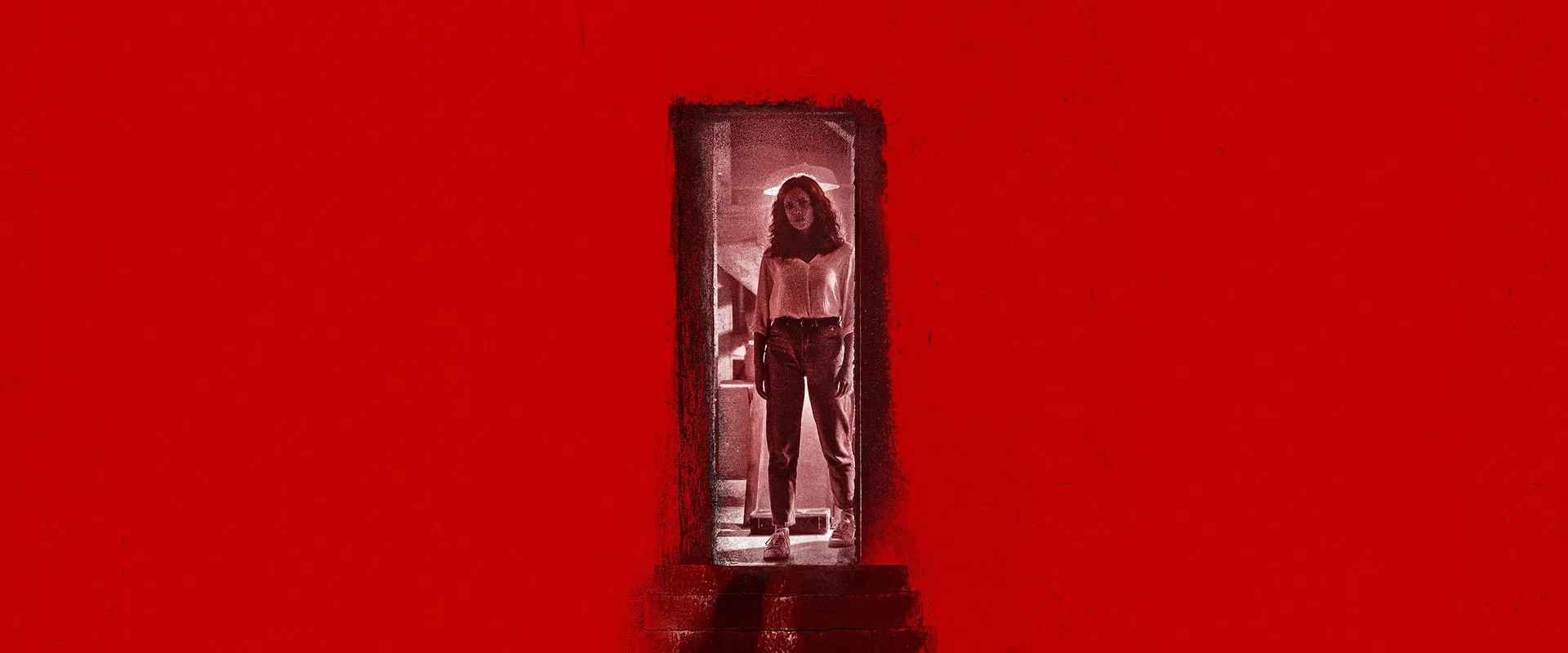If you’d told me, in the braying wake of too many rote horror films recycled through streaming services, that a movie called Barbarian would come bearing wit, ambiguity, and a genuine chill, well, the laugh would have been yours. That laugh, sharp, startled, delighted, is precisely what Zach Cregger’s Barbarian delivers, teasing the nerves and tickling them, too, as if the genre itself were a basement door just waiting to be wrenched open.
At the film’s icy core is the premise so simple, its untapped veins of anxiety seem almost embarrassing: a young woman, Tess (Georgina Campbell), arrives at a rainy, desolate Detroit Airbnb, only to find that the rental’s been double-booked by a stranger, Keith (Bill Skarsgård). The house, a moldering tooth in the jaw of a forgotten neighborhood, seethes with dread, not just because of what it hides, but because of the leftover violence saturating even its wallpaper. Yet what Cregger understands is that horror lives less in monsters and more in not knowing, the tremor between “Can I trust you?” and “Should I run?” That’s the too-confident smile Skarsgård brings: a host as winsome as he is unreadable, whose posture hovers between harmless and wolfish. Is he a threat, or merely the echo of every anxious stereotype Tess, and we, have learned to brace against in the dark?
It is this sustained ambiguity, the refusal to assure us, ever, of any stable ground, that keeps Barbarian from devolving into mere jump-scared pulp. The darkness of that basement tunnel, a space thick as nightmare, becomes the film’s truest special effect. It isn’t what’s lurking, but that something could, at any moment. The sequence is composed with the hush of a held breath. Cregger, blessedly, almost archaically, lets a corridor be a corridor. The darkness swallows the camera and my nerves with it, leaving me agitated not by what I've seen, but by what I cannot yet see.
The first half is a dance of tensions, urban decay, social anxiety, gendered trauma, before Barbarian tilts, gleeful and obscene, toward absurdity. Enter Justin Long’s AJ, a man whose cluelessness is both his shield and his sword. Long, made for comedy, plays with horror’s taboos almost as if he’s thumbing through a contract he can rewrite, a man who, discovering the terrifying crawlspace, fetches a tape measure and proceeds, by increments, to map out his own doom. The scene is horrifyingly breezy, the tape clicking along into the dark, as if Long’s denial could keep him safe. Here, the film, like a good magician, distracts you with jokes while lining up the next terrible reveal behind its back.
What makes the film so effective isn’t just the cast, though Campbell walks the impossible line between softness and hard-won courage, and Skarsgård remains the Schrodinger’s threat until the film itself makes up its mind, but its ability to pivot from queasy tension to belly laughter without ever snapping the thread of suspense. The laughter is relief, yes, but it’s nervous relief, laughter heard in the dark, not the daylight. You’re not let off the hook, you’re just offered a grin before the next scream.
Visually, Cregger eschews the baroque overkill of modern horror for murky shadow and the true silence of dread. There’s a lived-in wrongness to every shot, the shade of the basement isn’t merely dark, it’s unknowable, like the mouth of a cave no one ever mapped. The sound design thins out to a shriek or a breath, then silences itself, so your pulse drums the loudest of all.
But Barbarian is more than an exercise in fear mechanics. It tilts its hat at our expectations, then snatches it away, daring you to laugh, to flinch, to second-guess your own appetite for cruelty and catharsis. The way it disrupts misogynist tropes, never capering toward exploitation, always examining with sly remove, puts it closer to films like Get Out, where the haunted house is merely a mirror for the insidiousness outside its walls.
In the end, Barbarian is a slice of pure genre jubilation: you walk out having laughed, having sweated, having lived with the ambiguity of kindness and threat, safe and endangered, all tangled up together in the dark. It doesn’t simply scare you; it asks whether the next hand to reach out of the shadows will offer rescue or something else. Horror, here, is not a monster in the basement, but the anxiety we carry with us every time we open an unfamiliar door.
Is it a perfect film? The term feels almost beside the point. What matters is that Barbarian, with its beautifully performed uncertainty and its laughter powered by nerves, proves the genre still knows how to surprise. Sometimes, the oldest houses have the wildest secrets. Sometimes, the scariest thing is admitting you want to look.
And oh, do we look.


